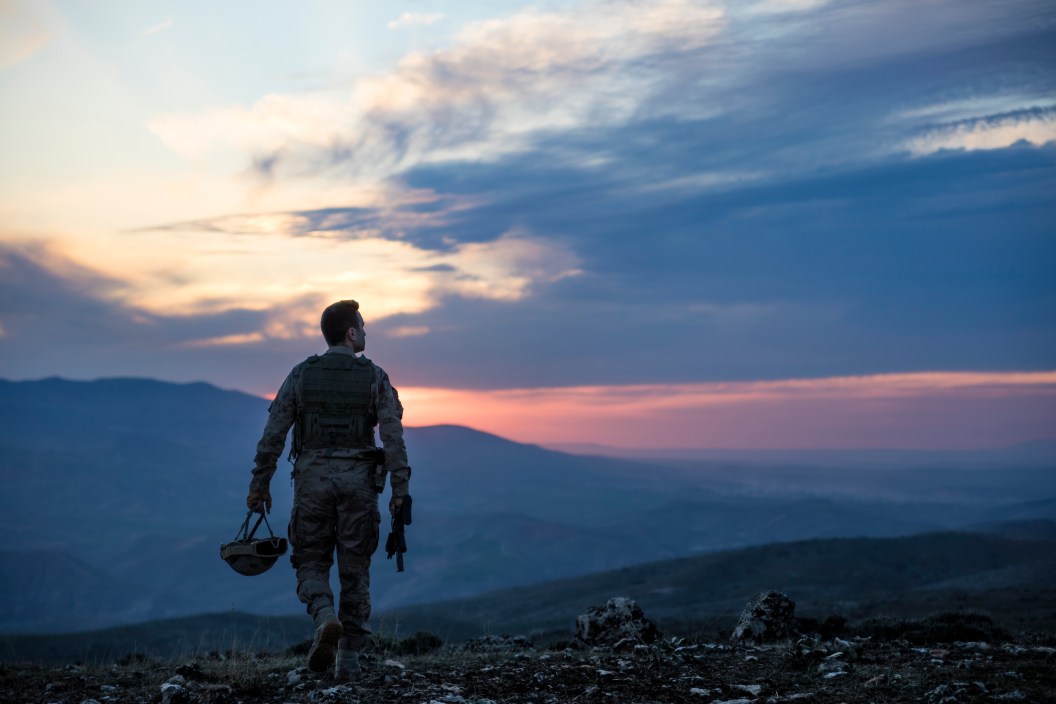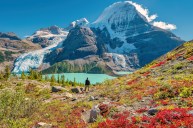It's no secret that being outside can heal a variety of ailments mental, emotional, and physical. Even without numerous studies backing up the science, most of us can attest to the fact that we just feel better after a long day outside, whether it's spent fly fishing at our favorite hole, hunkered down in a ground blind waiting on a big buck, or just going for an easy day hike.
And if it's true for the public, it's doubly true for veterans.
Veterans, particularly those of recent wars, have been shown to have higher levels of PTSD, mental health issues, and suicide rates than the general public. Even veterans like myself, who didn't deploy and don't have diagnosable mental health conditions, often spend the first several years of their lives after military service feeling a lack of purpose and community. Outdoor courses, adventure education, and even just time spent outside can not only help mitigate symptoms of mental health disorders, but they can also give veterans a sense of purpose and community again, as well as a viable means of therapy and employment.
Thankfully, plenty of outdoor organizations, and even the federal government, agree, and opportunities for veterans to recreate in the outdoors are exploding across the country.
The Veterans' Health Crisis
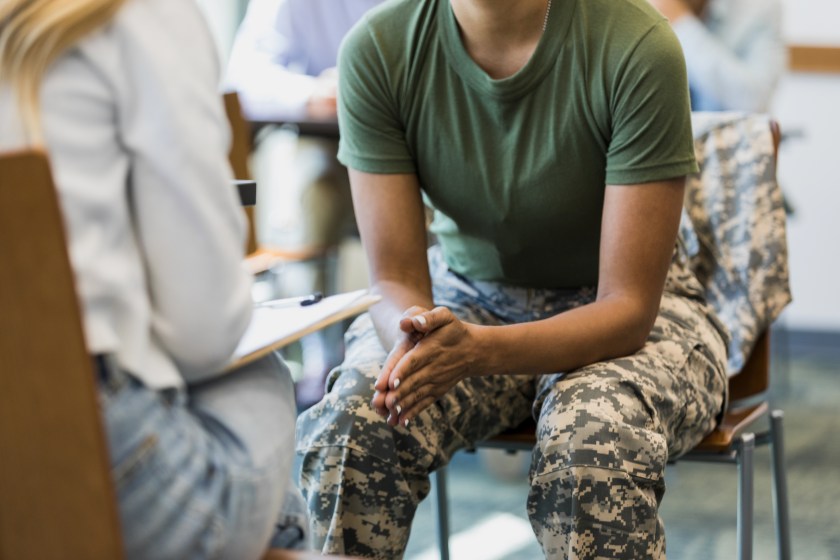
Getty Images, SDI Productions
Veterans have been shown to have disproportionately higher self-reported rates of obesity, cancer, strokes, kidney disease, diabetes, and mental health disorders. Two out of every three veterans who served after 9/11 have a diagnosable mental health concern. And the National Center for PTSD estimates that 15% of veterans who served in Iraq or Afghanistan have had PTSD in the past year. Almost 30% have had PTSD at some point in their life.
Veterans' increased risks for mental health disorders could also be why so many of them turn to substance abuse. Drugs and alcohol are readily available ways to numb oneself, and 11% of veterans who enter the Veterans Health Administration meet the criteria for a substance use disorder, with alcohol being the most commonly abused substance.
According to the Veterans Affairs National Veteran Suicide Prevention Annual Report, nearly 17 veterans committed suicide each day in 2020. Veterans are 1 ½ times more likely to commit suicide than people who have not served, and suicide is the second leading cause of death in veterans under age 45.
The Department of Veterans Affairs (VA) is aware of this mental health crisis amongst its veterans and uses an arsenal of different medications and therapies to treat it, including cognitive behavioral therapy, pharmaceuticals, and eye movement desensitization and reprocessing (EMDR). Their efforts are clearly not enough, however.
The Call For Outdoors-Based Therapy for Veterans
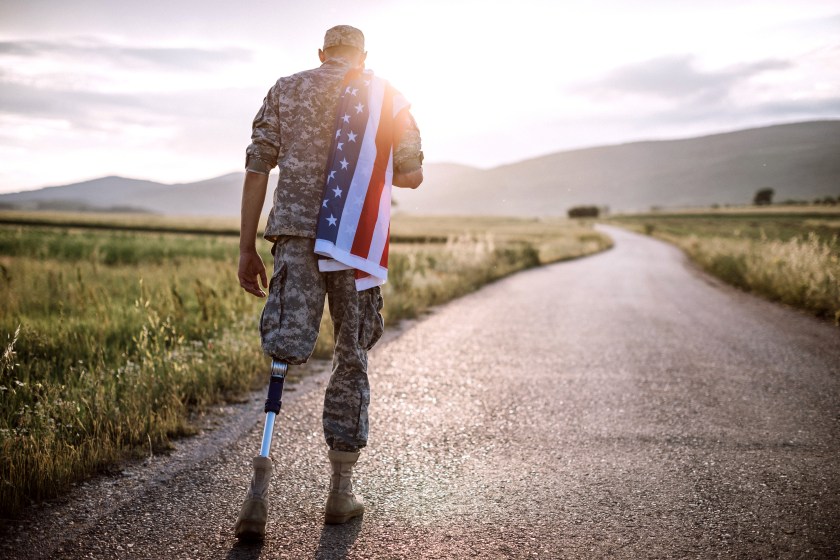
Getty Images, Pekic
Using the power of the outdoors to heal people and increase their quality of life is not new. Bathing in hot springs has been used as a curative since the Ancient Greeks up through the World Wars. In 1901 the Manhattan State Hospital, the largest psychiatric hospital in the world at the time, started "tent therapy" for their tuberculosis patients; spending time sleeping outdoors increased the survival rate among patients. Many of the camping patients also showed mental health improvements, and the hospital began using "tent therapy" for non-TB patients. In the 1980s, "forest bathing," invented in Japan as an antidote to tech-boom burnout, began taking off across the world.
As we all know, a simple day out in the woods can do wonders for your mental health. Hunting and fishing, both intrinsically taking place outdoors, are not just hobbies, but a way for all of us to increase our quality of life. In fact, a recent study actually proved that fishing is good for your mental health; men who fished regularly are 17% less likely to be diagnosed with a mental health condition.
These health benefits are just as true for veterans as they are for the general population. Numerous studies in recent years have proved that outdoor adventure and recreation can help heal veterans. One in particular, which took veterans on multi-day backpacking expeditions, found that one week after the experience, veterans reported more than 10% improvement in their mental health, and had a much more positive outlook on life.
I've seen it for myself while guiding a group of veterans from No Barriers. No Barriers leads disabled veterans on expeditions; the one I guided culminated in a summit attempt of Mount Baker, a glaciated volcano in Washington. While the veterans certainly pushed themselves mentally and physically on their summit attempts, there was also time built in for team-building and deep conversations; sitting on the scree field, surrounded by their peers, I witnessed veterans with numerous combat deployments open up about their experiences and trauma in a way that I doubt they were able to in their day-to-day life.
While no study has quite been able to figure out what it is, exactly, about the outdoors that heals vets, one study did find that awe was the most important emotion for reducing stress and increasing well-being in participating veterans. And, as any of us who have spent time in nature know, the surest way to inspire awe and a feeling of something larger than yourself, is to go outside.
The Veterans Recovery Outdoors Act
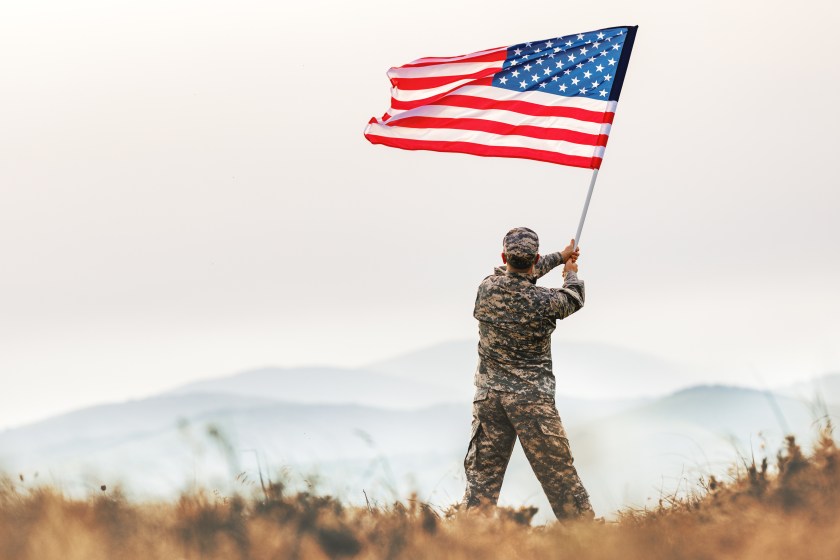
Getty Images, evgenyatamanenko
Historically, it's been difficult to convince pharmaceutical companies and doctors of the healing power of the outdoors. Though veterans can seek their own outdoor recreation, it is far more meaningful (and affordable) if done in a structured, insurance-covered setting. While alternative treatments such as meditation, mindfulness exercises, art, and yoga have been available to veterans for years, nature-based therapy has been slower to catch on. Some mental health specialists still only consider treatment "therapy" if it is directly facilitated by a trained counselor.
That thought process is slowly changing, even on the government level. In 2020, the Veterans Recovery Outdoors Act was signed into law to make it easier for veterans to use the outdoors for their therapy and medical treatment. The VA has been asked to create a task force to identify barriers and make recommendations to increase the use of public lands and outdoor spaces for veterans' medical treatment.
The bill was introduced by Representatives Chris Smith (NJ) and Adam Smith (WA), who said in a joint statement, "Veteran assistance groups agree that access to nature, combined with other treatments like group activities, have positive therapeutic effects on veterans, especially those struggling with combat-related injuries or post-traumatic stress."
There has also been a push to make the outdoors more accessible for all veterans, not just those seeking or needing treatment. In 2022, the National Defense Authorization Act gave veterans free Military Lifetime Passes to national parks and the GI Bill (an educational stipend that veterans earn during their service) has broadened to accept outdoor programs.
Traditionally used for programs like undergraduate and graduate degrees, pilot licenses, and trade programs, the GI Bill can also be used to receive avalanche education, pay for advanced mountain guide training, or cover a National Outdoor Leadership School (NOLS) course.
When I left the Army in 2017, I was lucky enough to do so without any direct trauma or PTSD. I was, however, a little aimless and unsure of what to do next. Luckily, I almost immediately began the NOLS Wilderness Medicine and Rescue Semester. I spent three months living outdoors, backpacking and canyoneering in Utah, rock climbing in Nevada, and backcountry skiing in Wyoming. I was in a cohort with several other veterans, which helped ease my transition out of the military, and we all left the course with our Wilderness EMT and Avalanche Level 1 certifications. Many of us turned what we learned during that semester into a career, going on to guide rock climbing in the Pacific Northwest, mountaineering on Denali in Alaska, and backpacking in the mountains of Peru.
Going Outside Helps Veterans
Therapy and mental health services often carry a negative stigma, especially among a demographic like veterans who have historically been taught to suck it up and tough it out. Going outside, however, be it for backpacking, hunting, fishing, or simply taking a walk in the woods, carries far less connotation and perhaps just as much healing power. It can also play up to veterans' strengths; summit-based expeditions and group recreation can recreate some of the mission- and team-driven experiences veterans had in their service.
Thanks to recent legislation, it's easier than ever for veterans to access outdoor therapies and courses, and even start a career in the outdoor industry.
READ MORE: Great Veteran-Owned Outdoors Brands
